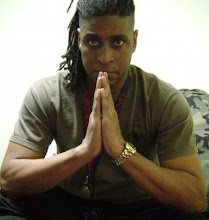Sunday, November 10, 2019
How to "Thank" a Veteran for Their Service.
"Thank you for your service." I want to say this expression came into existence in the early 2000s during the George W. Bush Administration shortly after the "War on Terror" started. These United States treated service members returning from Vietnam like pariahs near the tail end of the war and until the first part half of the 1980s. It was a losing effort and George W. Bush didn't want to see American veterans mistreated as they returned from the war to which he was sending them.
Then president Bush said to "Thank" a veteran for his or her service and people began doing so. I've heard it so many times that it almost sounds like "gesundheit" when someone sneezes. People SAY it, but does it actually MEAN anything?
The United States has ALWAYS treated our veterans with dignity and civility...right? Hardly. During our revolutionary war John Latrens the son of a wealthy South Carolina planter who raised a regiment of slaves to fight for the Continental Army. The Congress promised Laurens' men their "freedom" in exchange for fighting for their new country. Laurens died in the last weeks of the war and all the slaves who'd fought in his command were unceremoniously returned to their masters. They were given what the U.S. Marine Corps would affectionately call "the green weenie" a nice Corpism for "you've been screwed." Laurens' regiment were NOT alone, men who fought with Washington had been promised pensions but the congress reneged.
At the end of the American Civil war pensions were paid to disabled vets, homes for veterans were established, but after 1900 the pro veteran sentiment wore thin as many questioned WHY we were still paying pensions to men who'd lost arms, legs and their sight or why it was necessary to have homes for them some 50 years after their war had been fought. Men returning from World War 1 were denied pensions promised to them and staged demonstrations in Washington DC which turned into riots. The federal government after the riots gave the veterans what had been promised them.
Before world war two ended congress decided that the returning veterans would get a better deal than their predecessors who'd fought in the first "war to end all wars". They were given a "GI Bill of Rights." G.I. stood for Government Issue and was also a term American Servicemen called themselves to imply that much like the clothes they wore, beds on which they slept and boots they were they were interchangeable parts of a huge machine run by Uncle Sam.
While World War II era vets did get educational benefits and could get low interest home loans, their issues with post traumatic stress were essentially ignored and trivialized. The same applied to veterans who served in the Korean conflict. Because of intense media scrutiny, American politicians in the post Vietnam era decided that the mistakes made during the war in Southeast Asia would not be repeated. Veterans who suffered from post traumatic stress had access to mental health services. Those who had been in contact with harmful chemicals like Dupont's "Agent Orange" could receive medical care and pensions.
Present day, on Veterans day, American Vets are thanked for their service. Big corporate restaurant chains will give vets a free cup of coffee or a meal on the day in question and veterans will be bombarded with "thank you for your service." I would like to say to corporate America, rather than giving vets a cup of coffee, a stack of pancakes or an order of hot wings, hire us.
Give a man or woman who has a sense of discipline a JOB. HIRE someone who can work with people with whom they might not agree, but will put their personal issues aside and put the job and the team FIRST. Employ a man or woman who knows how to meet a deadline and knows the meaning of the words respect, loyalty, duty and honor.
If someone were to ask the average Veteran if they had a choice between a JOB and a cup of coffee, I'll wager the veteran would probably go with the former. Personally I'd say "both", but what do I know. You want to honor a vet or "thank" them for their service? Give them a job. You'll both be glad you did.
Subscribe to:
Post Comments (Atom)

No comments:
Post a Comment